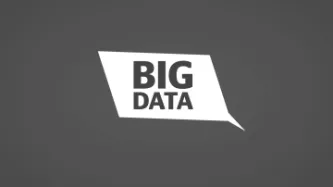Search
Content type: Long Read
“Hey [enter AI assistant name here], can you book me a table at the nearest good tapas restaurant next week, and invite everyone from the book club?” Billions of dollars are invested in companies to deliver on this. While this is a dream that their marketing departments want to sell, this is a potential nightmare in the making.Major tech companies have all announced flavours of such assistants: Amazon’s Alexa+, Google’s Gemini inspired by Project Astra, Microsoft’s Copilot AI companion and…
Content type: Long Read
Now more than ever with a global pandemic happening, our lives are being shaped by our interaction with the digital world. Work meetings on Zoom followed by Skype with family before a quick run with your favourite running app and a Google search for your next meal: technologies and services offer us a lot and greatly improve our daily lives. But what's the real cost of these tools we rely on so much?
A lot of these companies, especially those offering free services, collect data about you. It…
Content type: Examples
Article extract- translated from the original French.
"A political big data company with close ties to the federal liberals and which worked on Emmanuel Macron's campaign in France is setting up its head office in Old Montreal to continue its growth and take advantage of Montreal's digital vitality.
Data Sciences inc. (DS) was born from the victory of the Liberal Party of Canada (PLC) in the last election. Tom Pitfield, a close friend of Justin Trudeau, was leading digital operations during…
Content type: Frequently Asked Questions
On 27 October 2020, the UK Information Commissioner's Office (ICO) issued a report into three credit reference agencies (CRAs) - Experian, Equifax and TransUnion - which also operate as data brokers for direct marketing purposes.
After our initial reaction, below we answer some of the main questions regarding this report.
Content type: Examples
The Australian government reported soon after releasing its CovidSafe contact tracing app that the app doesn’t work properly on iPhones because it doesn’t use Apple’s Exposure Notification framework and the Bluetooth functions deteriorate if the app isn’t kept running in the foreground. The government will update the app to use Apple’s framework. The app will store data on Amazon Web Services servers within Australia, although critics have expressed concern that the data could be handed over to…
Content type: Examples
After governments in many parts of the world began mandating wearing masks when out in public, researchers in China and the US published datasets of images of masked faces scraped from social media sites to use as training data for AI facial recognition models. Researchers from the startup Workaround, who published the COVID19 Mask image Dataset to Github in April 2020 claimed the images were not private because they were posted on Instagram and therefore permission from the posters was not…
Content type: Video
The incorporation of new technologies to electoral processes is a phenomenon with a global and exponential growth. Despite its benefits, online campaigning is not without challenges, and can pose threats to transparency and equity in electoral competition. Given the role of elections as foundational pillars of the democratic system and a key gateway for the exercise of fundamental civil rights, these implications must be assessed with care and through specific tools.
We at PI, together…
Content type: News & Analysis
Name: Google/Fitbit mergerAge: GestatingAppearance: A bit dodgy. One of the world’s biggest tech giants, trying to purchase a company that makes fitness tracking devices, and therefore has huge amounts of our health data.I don’t get it. Basically Google is trying to buy Fitbit. As if Google doesn’t already have enough data about us, it now wants huge amounts of health data too.Oh, Fitbit, that’s that weird little watch-type-thing that people get for Christmas, wear for about a month while they…
Content type: Video
Immediately following the UK general election in December 2019, we worked with Open Rights Group to commission a YouGov poll about public understanding and public opinion about the use of data-driven campaigning in elections.
The poll used a representative sample of 1,664 adults across the UK population.
'Data-driven political campaigning' is about using specific data about you to target specific messages at you. So, for this might involve knowing that you are, for example, likely to…
Content type: Call to Action
You might have read our investigation into advertisers who upload your data on Facebook and found out some companies doing the same to you. Well, you can join us and hold them accountable by sending your own Data Subject Access Request (DSAR)!
Before you get started we suggest you read our FAQ and take a look at our 7+1 tips to make the most out of your DSAR before and after.
To do so you simply need to copy the message bellow and send it to the companies that uploaded your data…
Content type: Long Read
This research was commissioned as part of Privacy International’s global research into data exploitative technologies used to curtail women’s access to reproductive rights.
Read about Privacy International’s Reproductive Rights and Privacy Project here and our research findings here.
1. What are the barriers to access safe and legal abortion care?
Even though abortion is legal in certain cases in Argentina, different types of barriers restrict the access to legal abortions, contribute…
Content type: Long Read
This research was commissioned as part of Privacy International’s global research into data exploitative technologies used to curtail women’s access to reproductive rights.
Read about Privacy International’s Reproductive Rights and Privacy Project here and our research findings here.
1. What are the barriers to access safe and legal abortion care?
Legal barriers
To identify the barriers experienced by women to access safe and legal abortion care, we have to understand the legal picture…
Content type: Long Read
Covid Apps are on their way to a phone near you. Is it another case of tech-solutionism or a key tool in our healthcare response to the pandemic? It’s fair to say that nobody quite knows just yet.
We’ve been tracking these apps since the early days. We’ve been monitoring Apple and Google closely, have been involved in the UK’s app process, our partners in Chile and Peru have been tracking their governments’ apps, and more.
Of course privacy concerns arise. But only a simplistic analysis would…
Content type: Long Read
This research was commissioned as part of Privacy International’s global research into data exploitative technologies used to curtail women’s access to reproductive rights. Reproductive Rights and Privacy Project. Read about Privacy International’s Reproductive Rights and Privacy Project here and our research findings here.
Content type: Long Read
Photo by Cade Roberts on Unsplash
For those of you who don't spend the most productive part of your day scanning the news for developments about data and competition, here's what has been going on in the UK since summer 2019.
Basically, the UK competition authority started an investigation into online platforms and digital advertising last summer, and issued their preliminary findings in December 2019, concluding that Facebook and Google are very powerful in the search engine and social media…
Content type: Examples
The consumer and market trends insight company StatSocial announced Crisis Insights, which it claims tracks rapidly changing consumer audience dynamics to help US brands and CMOs respond effectively to the ongoing coronavirus epidemic and economic slowdown. StatSocial's Silhouette social data platform monitors and analyses more than 1.3 billion social accounts covering more than 70% of US households. Crisis Insights is intended to identify the changing dynamics of customers and consumers who…
Content type: Guide step
uBlock Origin (que no debe confundirse con uBlock, que es un proyecto diferente) es un bloqueador de anuncios independiente y de código abierto que utiliza una lista depurada de servidores y evita que tu navegador se conecte a estos servidores y evita que tu navegador se conecte a estos servidores con el propósito mostrarte anuncios.
Nota: En el mercado hay muchos bloqueadores de anuncios y puedes ensayar alternativas. Al utilizar un bloqueador de anuncios independiente, de código abierto y…
Content type: Guide step
Ad Blockers aim to prevent your browser from connecting to Ad servers and loading ads on webpages you are visiting. They can also block some parts of webpages that likely display ads. Blocking ads and connections to ad servers can help minimise the amount of data that the Adtech industry collects about you for targeted advertising.
Warning: Using an ad-blocker may cause some pages to display incorrectly or not at all. This guide also shows how you can modify the Ad Blocker's behaviour to allow…
Content type: Explainer
It’s tough to minimise targeted ads on phones because ads can be delivered based on data from the device level (such as what operating system your phone is using or based on unique numbers that identify your phone), browser level (what you search for within a browser), and within the apps you use. An app could target ads at you based on your location (tied to your unique device id number(s)) for example. Apps, including Instagram, direct you to opt-out of targeted ads at the device level. Here'…
Content type: Examples
The New York Times picked 16 categories (like registered Democrats or people trying to lose weight) and targeted ads at people in them. They used the ads to reveal the invisible information itself, noting that it is a "story of how our information is used not just to target us but to manipulate others for economic and political ends — invisibly, and in ways that are difficult to scrutinize or even question."
The article illustrates that even though data providers don’t…
Content type: Examples
In 2015, US director of national intelligence James Clapper, backed by National Security Agency director Admiral Michael Rogers, warned Congress that the next phase of escalating online data theft is likely to involve manipulating digital information. Clapper and Rogers viewed this type of attack as more likely than a catastrophic event of digitally triggered damage to physical infrastructure. The pair believed that manipulating and deleting data would compromise data integrity and undermine…
Content type: Examples
Uber has closely studied how dynamic pricing functions and when it's acceptable to users. One discovery is that round numbers signal haste and sloppiness where riders appear to believe that more precise numbers (for example, 2.1 instead of 2) have been carefully worked out by an algorithm. The company's head of head of economic research Keith Chen says that riders will pay up to 9.9 times the normal price if their phone's battery is almost dead, information the Uber app openly collects in order…
Content type: Examples
In 2016, researchers discovered that the personalisation built into online advertising platforms such as Facebook is making it easy to invisibly bypass anti-discrimination laws regarding housing and employment. Under the US Fair Housing Act, it would be illegal for ads to explicitly state a preference based on race, colour, religion, gender, disability, or familial status. Despite this, some policies - such as giving preference to people who already this - work to ensure that white…
Content type: Examples
Few people realise how many databases may include images of their face; these may be owned by data brokers, social media companies such as Facebook and Snapchat, and governments. The systems in use by Snap and the Chinese start-up Face++ don't save facial images, but map detailed points on faces and store that data instead. The FBI's latest system, as of 2017, gave it the ability to scan the images of millions of ordinary Americans collected from millions of mugshots and the driver's licence…
Content type: Examples
A 2017 lawsuit filed by Chicagoan Kyle Zak against Bose Corp alleges that the company uses the Bose Connect app associated with its high-end Q35 wireless headphones to spy on its customers, tracking the music, podcasts, and other audio they listen to and then violates their privacy rights by selling the information without permission. The case reflects many of the concerns associated with Internet of Things devices, which frequently arrive with shoddy security or dubious data…
Content type: Case Study
For those concerned by reporting of Facebook’s exploitation of user data to generate sensitive insights into its users, it is worth taking note of WeChat, a Chinese super-app whose success has made it the envy of Western technology giants, including Facebook. WeChat has more than 900 million users. It serves as a portal for nearly every variety of connected activity in China. Approximately 30% of all time Chinese users spend on the mobile internet centers around…





















